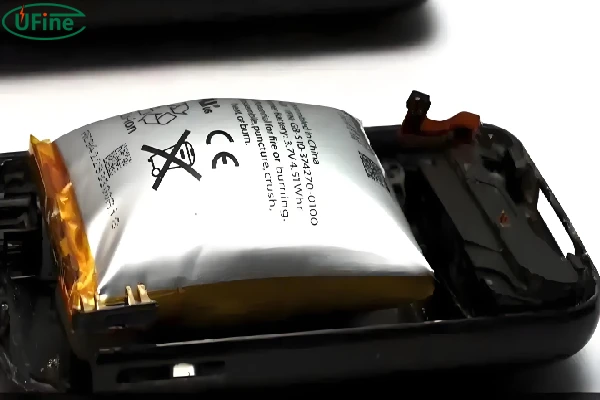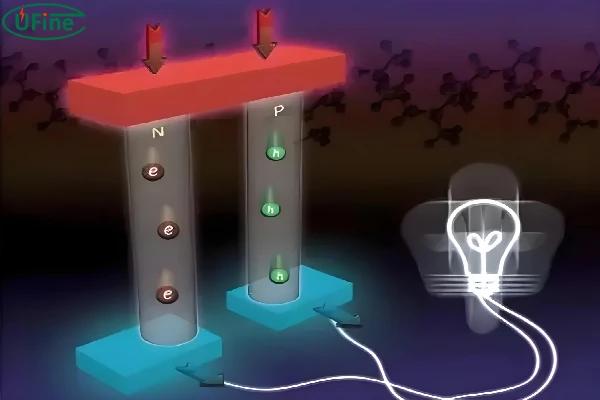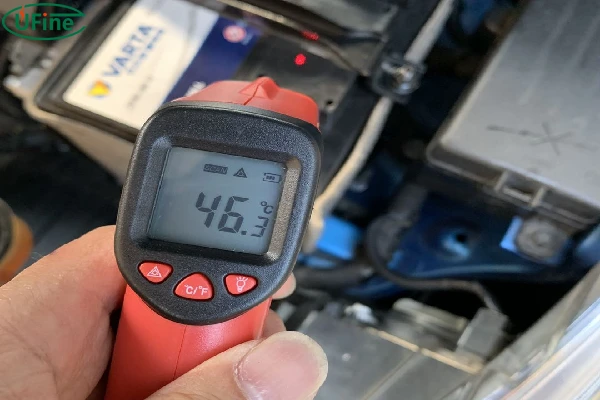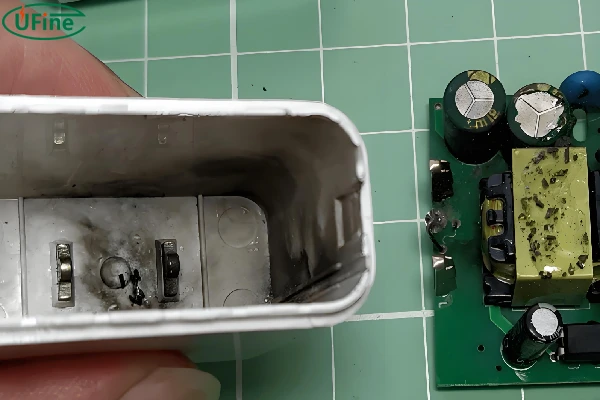Lithium batteries are renowned for their efficiency and power. Still, they sometimes get hot, which can be concerning and potentially dangerous. This article will explore why lithium batteries overheat, what happens when they do, and how to prevent it. By understanding these aspects, you can ensure the safety and longevity of your batteries.
Part 1. Why is the lithium battery hot?
Several factors can cause a lithium battery to overheat. Understanding these can help you identify and mitigate the risks.
- High Current Discharge: When a lithium battery discharges high current, it generates heat. Devices that quickly require a lot of power, like electric vehicles or high-performance gadgets, can cause this issue. The battery’s internal resistance plays a role here; higher resistance leads to more heat generation during high current discharge.
- Environmental Temperature: Batteries are sensitive to their surroundings. High ambient temperatures can cause the battery to overheat as the external heat adds to the internal heat generated during use. Prolonged exposure to heat, such as leaving a device in a hot car, can exacerbate this problem.
- Battery Age and Condition: Over time, batteries degrade. An aged or damaged battery is more prone to heating because its internal components break down, increasing internal resistance. Regularly using an old battery beyond its optimal performance range can lead to excessive heat generation.
- Manufacturing Defects: Sometimes, the cause of overheating lies in the battery’s design or manufacturing flaws. Poorly made batteries can have internal short circuits or other defects that lead to overheating during normal use.
- Intensive Use: Continuous or heavy battery usage without breaks can also cause it to heat up. Devices that continuously draw a lot of power, such as drones or electric bikes, can cause batteries to overheat if used for extended periods.
Part 2. Why does the lithium battery get hot when charging?
Charging a lithium battery generates heat, and there are several reasons why this might happen more intensely during charging.
- High Charging Current: Fast charging methods, while convenient, push a lot of current into the battery quickly, generating heat. This is especially true for quick and high-wattage chargers designed to reduce charging times.
- Chemical Reactions: The process of charging a battery involves complex chemical reactions. As the battery stores energy, these reactions release heat. While some heat is normal, excessive heat indicates that the reactions are happening too rapidly or inefficiently.
- Overcharging: Charging the battery beyond its capacity, though less common with modern smart chargers, can still happen. Overcharging leads to increased internal pressure and heat as the battery attempts to store more energy than it can handle.
- Poor Ventilation: Charging a battery in an enclosed space or without adequate ventilation can cause heat buildup. Ensuring proper airflow around the device and charger can help dissipate this heat more effectively.
- Faulty Charging Equipment: Using incompatible or low-quality chargers can cause batteries to heat up. Chargers that don’t match the battery’s specifications can overload it, leading to overheating.
Part 3. What happens if the lithium battery overheats?
Overheating can have several serious consequences for lithium batteries:
- Reduced Lifespan: Consistent overheating can significantly shorten a battery’s life. Heat accelerates the degradation of the internal components, leading to faster wear and tear.
- Capacity Loss: A battery that overheats frequently may lose its ability to hold a charge effectively. This happens because the heat damages the internal cell structure, reducing its overall capacity.
- Swelling: Excessive heat can cause the battery to swell. This is due to the buildup of gases inside the battery as the internal components break down. Swelling is a serious warning sign that the battery is close to failing.
- Fire Hazard: In extreme cases, overheating can lead to thermal runaway, where the battery’s internal temperature increases uncontrollably. This can result in the battery catching fire or even exploding, posing significant safety risks.
- Performance Issues: Overheating can also cause immediate performance issues, such as the device shutting down to protect itself, reduced power output, and erratic behavior.
Part 4. Lithium battery safety temperature range
Maintaining lithium batteries within a safe temperature range is crucial for their performance and safety:
- Operating Range: Typically, lithium batteries operate safely between 0°C and 45°C (32°F to 113°F). Operating outside this range can cause performance issues and increase the risk of overheating.
- Storage Range: For storage, the safe temperature range is usually -20°C to 25°C (-4°F to 77°F). Storing batteries in temperatures beyond this range can lead to self-discharge and potential damage.
Understanding these ranges helps ensure that your batteries remain safe and functional.
Part 5. Lithium battery hot safety tips
To prevent your lithium battery from overheating, follow these practical safety tips:
- Use Quality Chargers: Always use the charger recommended by the battery or device manufacturer. Cheap or counterfeit chargers can damage your battery and increase the risk of overheating.
- Avoid Extreme Temperatures: Keep batteries away from direct sunlight or heat sources. Avoid leaving them in hot environments, such as inside a car on a sunny day.
- Monitor Charging: Do not leave batteries charging unattended for long periods. Remove the battery from the charger once it is fully charged to prevent overcharging.
- Ensure Proper Ventilation: Ensure good airflow around the battery during use and charging. Avoid charging batteries in enclosed or poorly ventilated areas.
- Regular Inspection: Check your batteries for signs of damage, swelling, or unusual heat. Replace any batteries that show signs of wear or damage immediately.
- Avoid Overloading: Do not exceed the recommended usage limits for your battery. High loads can generate excessive heat and strain the battery.
- Safe Storage: Store batteries in a cool, dry place. Use protective cases if necessary to prevent damage and keep them at a stable temperature.
- Battery Management Systems (BMS): Invest in devices with built-in Battery Management Systems. These systems help monitor and regulate the battery’s temperature, charging, and discharging cycles.
- Educate Yourself: Stay informed about the latest battery safety guidelines and technologies. Understanding how to properly care for and use your batteries can prevent overheating.
By following these tips, you can maintain the safety and efficiency of your lithium batteries, ensuring they serve you well for their entire lifespan.
In conclusion, while lithium batteries are powerful and efficient, they can get hot under certain conditions. Understanding the causes and effects of overheating and implementing the safety tips provided can help you prevent overheating and ensure the longevity and safety of your batteries.
Related Tags:
More Articles
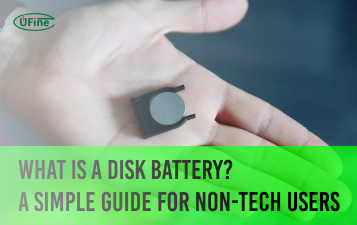
What Is a Disk Battery? A Simple Guide for Non-Tech Users
A disk battery is a small, round cell used in watches, remotes, and other electronic devices. It delivers steady power for compact, low-drain devices.
What Battery Powers a Space Heater?
Discover the type of battery that powers space heaters and learn how to choose the right one for efficient heating in your home or office.
What Is an LR14 Battery? Learn About This C-Size Cell
The LR14 battery, also known as a C battery, delivers steady power. Learn its specs, uses, lifespan, and how it compares to other battery types.
Watch Battery Dimensions Chart: Sizes, Voltages, and Equivalents Explained
Understanding watch battery dimensions helps you choose the right size, voltage, and equivalent model to keep your watch running safely and smoothly.
How Long Can You Rely on Battery-Powered Generators?
Discover battery generator runtime & lifespan factors. Learn how to maximize performance and choose the right power solution.
